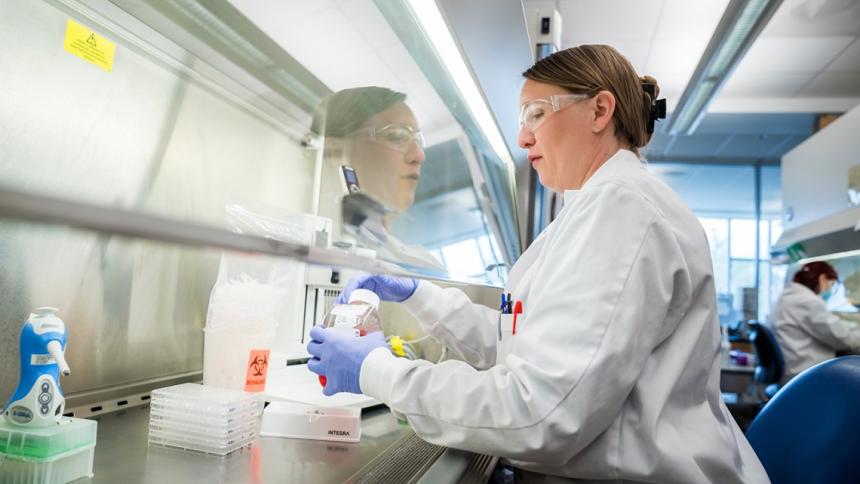In the News

April 19, 2024
Cornell virology experts are sequencing the bird flu virus that recently affected cows in Texas, after work at Cornell and two other veterinary diagnostic laboratories found the highly pathogenic avian influenza (HPAI) virus in cattle samples, a first for this species.

February 08, 2024
While the coronavirus pandemic reinvigorated the spotlight on One Health, the focus has generally been on wildlife and livestock. A study by Cornell researchers show that companion animals or peri-domestic wildlife can act as notable reservoirs for pathogens that may affect human health as well.

January 30, 2024
A transformational gift from philanthropist and Cornell alumna K. Lisa Yang ’74 will endow and rename the Cornell Wildlife Health Center as the Cornell K. Lisa Yang Center for Wildlife Health at the College of Veterinary Medicine.

January 08, 2024
Cornell researchers have discovered coronaviruses in wild carnivores that had never been reported in these species before.

January 02, 2024
Cats occupy a distinct position in the ecological networks of companion animals, humans and peri-domestic species – wild and feral animals living near human habitations – according to a recent review article by a team of Cornell researchers.

For Your Information
November 01, 2023
This new paper by Cornell researchers presents background and commentary focusing on companion and peri-domestic animals as disease risk for humans, taking into account the human-animal interface and population dynamics between the animals themselves.

March 30, 2023
In recognition of their outstanding scholarship and service, multiple members of the Cornell University College of Veterinary Medicine faculty have been granted named professorships, including Drs. Raina Plowright and Gary Whittaker.

February 03, 2023
A study led by Cornell researchers found that white-tailed deer – the most abundant large mammal in North America – are harboring SARS-CoV-2 variants that once widely circulated but are no longer found in humans.

January 31, 2022
The Cornell Wildlife Health Center continues to enhance synergy among many of Cornell’s wildlife-focused programs, expand student learning opportunities, and capitalize on earnest interdisciplinary approaches to addressing key wildlife conservation and related public health challenges.

September 07, 2021
By testing easier-to-study coyotes, Cornell researchers, in collaboration with the Cheyenne River Sioux tribe, have identified a range of lethal diseases threatening black-footed ferrets – one of the most endangered animals in North America.
